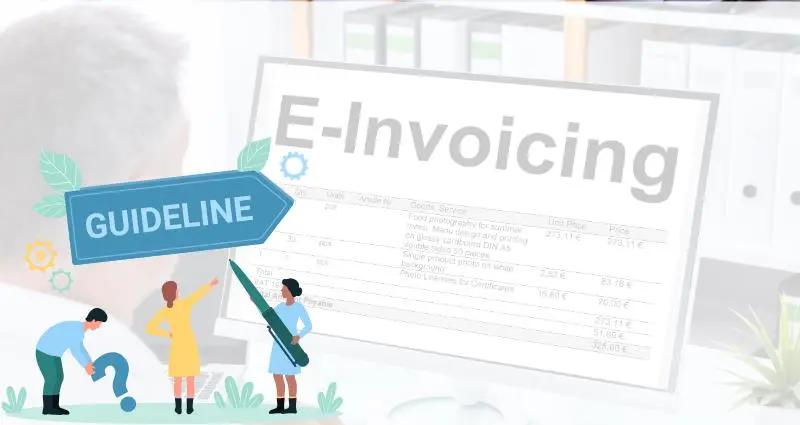Dear Team,
I’m interested in a demo of TaxInvoicePro to explore how it can streamline my business operations. Please share the details and schedule.
Looking forward to your response.
Thank you.

E-Invoice Compliance in India has become a crucial part of the country’s Goods and Services Tax (GST) framework. With growing digitalization in tax administration, e-invoicing ensures transparency, reduces errors, and promotes faster processing of GST returns. Understanding the e-invoice rules, applicability, and turnover limits is essential for businesses to remain compliant and avoid penalties.
In this guide, we’ll break down what e-invoice compliance means, who it applies to, and how businesses in India can stay aligned with GST e-invoice guidelines.
What Is E-Invoice Compliance in India?
E-invoice compliance in India refers to the mandatory requirement for certain businesses to generate invoices in a standardized digital format and report them to the GST system through the Invoice Registration Portal (IRP). This system assigns a unique Invoice Reference Number (IRN) and digitally signs the invoice, validating it for use under GST.
The goal is to automate data entry, reduce mismatches in returns, and improve the overall efficiency of the tax system. Businesses that meet certain criteria must comply with these requirements under the GST law.
E-Invoice Rules in India
The e-invoice rules in India are governed by the Central Board of Indirect Taxes and Customs (CBIC). According to the rules, only B2B transactions and exports are covered under mandatory e-invoicing. Businesses must upload their invoices to the IRP in real time to obtain the IRN before sharing the invoice with buyers.
Important points include:
Failure to comply with e-invoicing regulations can lead to penalties and rejection of GST claims.
E-Invoice Applicability in India
Understanding e-invoiceapplicability in India is key for businesses to determine if they are required to comply. E-invoicing is currently applicable to registered persons whose aggregate turnover exceeds the specified limit in any financial year from 2017-18 onward.
It covers:
E-invoicing does not apply to B2C transactions or entities like SEZ units and banks.
E-Invoice Turnover Limit in India
The e-invoice turnover limit in India has gradually decreased over time. Here’s a quick summary of how it has evolved:
This means that any business with an annual turnover of ₹5 crore or more must issue e-invoices for B2B transactions under GST.
GST E-Invoice Guidelines
The GST e-invoice guidelines specify not only the format and process but also how to integrate the e-invoicing system with your existing billing or ERP software. Many accounting tools now offer built-in compliance support, allowing seamless generation and reporting of e-invoices.
Key features of GST e-invoice guidelines include:
These guidelines aim to reduce duplication, prevent fake invoicing, and ensure that GST returns are accurate and timely.
Conclusion
E-Invoice Compliance in India is now a vital responsibility for businesses meeting the turnover threshold. With clearly defined e-invoice rules in India, applicability, and a steadily decreasing e-invoice turnover limit, staying compliant is not just a legal obligation but a smart business move. By following the GST e-invoice guidelines, businesses can automate their tax processes, reduce manual errors, and remain audit-ready. Make sure your invoicing system supports e-invoicing and stay up to date with the latest regulations to avoid penalties and keep operations running smoothly.